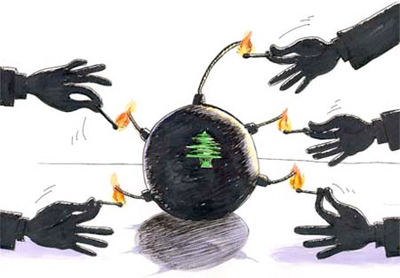
Since Dr. Kazemzadeh has been kind enough to enumerate his objections to my article I will respond referring his system of parsing his objections to simplify the debate.
1. I thank my colleague for not repeating himself and, likewise, refer the readers to my brother’s response to his critique in these pages.
2. Dr. Kazemzadeh argues there is “nothing” original in this essay. I wonder on what authority he makes such a suggestion? Has he come across my article’s tripartite categorization of approaches to terrorism elsewhere? Has he seen my elaboration of the definition of terrorism and its components in any other essay? He hasn’t. Why? Because these are original arguments. All my positions are already academically reviewed and published (in English) before finding their way to this Persian version.
3. Mr. Kazemzadeh details some terrorist attacks by Hezbollah and claims that I have attempted to “save” them from the designation of “terrorist”. I invite the reader to look at my definition of terrorism. There I specifically stated that terrorism is defined “independent of the identity of its perpetrators”. I made it perfectly clear: even Al-Qaidah, an undisputed terrorist organization may engage in non terrorist (paramilitary) activity (like its attack on USS Cole). Hezbollah of Lebanon, too, have attacked Israeli military convoys in southern Lebanon or the US Marine compound in Beirut. Those are not instances of terrorism, according to my definition, because their objectives were military in nature. Please notice that my discussion, unlike my critic’s, is precise and specific.
4. If the regime in Iran has resorted to terrorist activities, according to my definition, it is not enough for Mr. Kazemzadeh to claim it and for us to take his word for it. He has to specify the time, place, target, objectives, and circumstances of such activities. By the way, my etymology of the term terrorism to the French revolution was meant to point to the secular and modern origins of the phenomenon not my endorsement of engaging in the singularly partisan and biased designation of sovereign states as terrorists, whether that be members of the “axis of evil,” Israel, or United States.
5. I thank Dr. Kazemzadeh for acknowledging and praising my condemnation of terrorism but I will have to reiterate: my definition of terrorism does not include the identity of the perpetrators. I am not in the business of blaming entire groups of religious and political activists as terrorists because of the specific acts of terrorism in their rank. If I were, you can be sure I would not “single out” the Hezbollah of Lebanon for such treatment. Now “that” would be applying a double standard!
6. Kazemzadeh starts his last objection to my article with the words: “It appears that”, which actually is accurate. It so ‘appears’ to my critic that these arguments are not original (I demonstrated they are) or that that they do not go to “root causes” of terrorism. They do. Root causes are not world religions such as Islam. That is for sure. If Islam, as such, was a root cause of terrorism would it not have grappled with the problem throughout its history? Here Kazemzadeh loses the modicum of restraint and scientific consistency he has exercised at the outset and launches into an emotional diatribe; to wit:
“We need to discuss the root causes of terrorism and violence by and especially the fundamentalist terrorist regime. We need to ask would the incumbent fundamentalist regime be able to survive if it would stop violence against the Iranian people who demand freedom, democracy, and human rights. What would happen if the terrorist regime would to announce that it no longer would imprison and thus torture, execute or assassinate anyone who is against velayat e faghih system?”
Okay may be we do need to ask these questions but how would these inquiries or their answers help us with digging into the “roots” of the phenomenon of terrorism? We get it. Mr. Kazemzadeh doesn’t like the regime in Iran. I may not either. But I do not use every occasion and every audience to “emote” against the regime in Iran. I do not obscure a scientific – and humanitarian — discussion about causes and consequences of terrorism by sloganeering about the nature of Islam and the crimes of the Iranian regime. Every word has a place and every point requires an occasion, as the Persian expression has it. I share my critic’s wish for an “objective” secular democratic and prosperous Iran of course. I am trying my best for change there; I hope he is too.
Finally, I invite Mr. Kazemzadeh to distance himself from emotional diatribes against Islam altogether. I am not privileged to know his expertise but judging from his approach to history, I am sure it is not history of religion. He seems to have no scholarly grasp of the history of religions (not only Islam) or that of Islam for that matter. Every instance he mentions at the end of his critique is either inaccurate or matched by contrary instances.
For example, neither Islam advanced everywhere by the point of the sword (it didn’t in Indonesia, for example, the most populous Muslim country in the world) nor did other religions such as Judaism or Christianity advance by friendly exhortation everywhere (just take a look at the book of” Exodus” in the bible or the campaigns of Charlemagne against Saxons.) Kazemzadeh seems to be humble enough to preface several of his passages with the phrase: “if my analysis is correct …”. Well, I am afraid, more often than not, it is not.
AUTHOR
Mahmoud Sadri is Professor of Sociology at Texas Women’s University.






